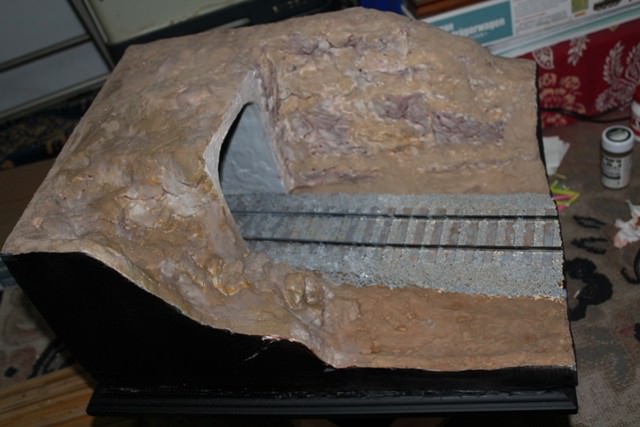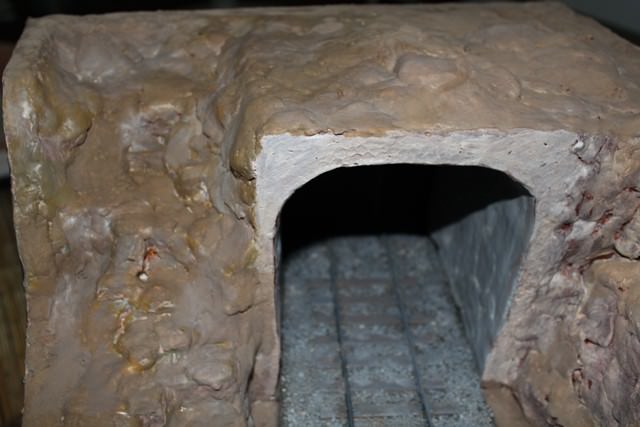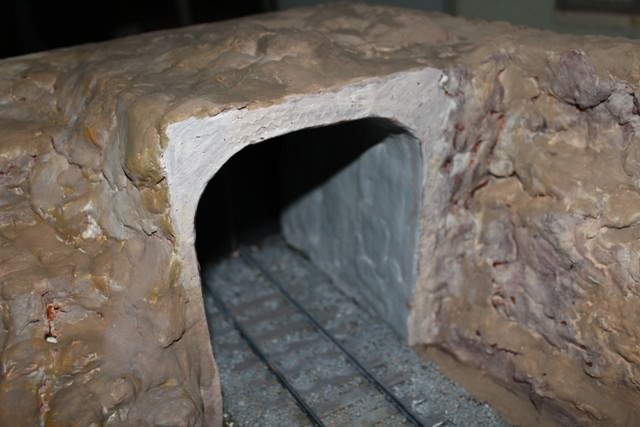One thing you must keep in mind is the thickness of the "roof" above the tunnel. The thickness you have built is OK for a concrete "tunnel" but then the topside should be a building or a street/road. There can be thin-roofed tunnels where there is a danger of rocks falling down but then the entrance is more of an extended tube leading up to the "real" tunnel.
For a typical European tunnel I would suggest that the rock above the tunnel should be at least as thick as half the height of the opening. It is difficult to make a tunnel with a thin roof without the roof caving in so they would usually blast an open topped trench until the roof is thick enough to hold its own weight.
Some images to think about

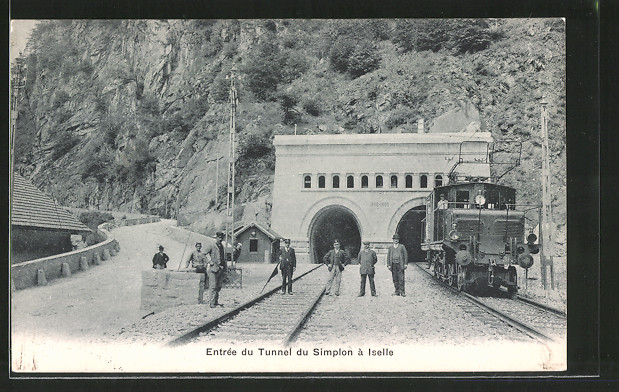
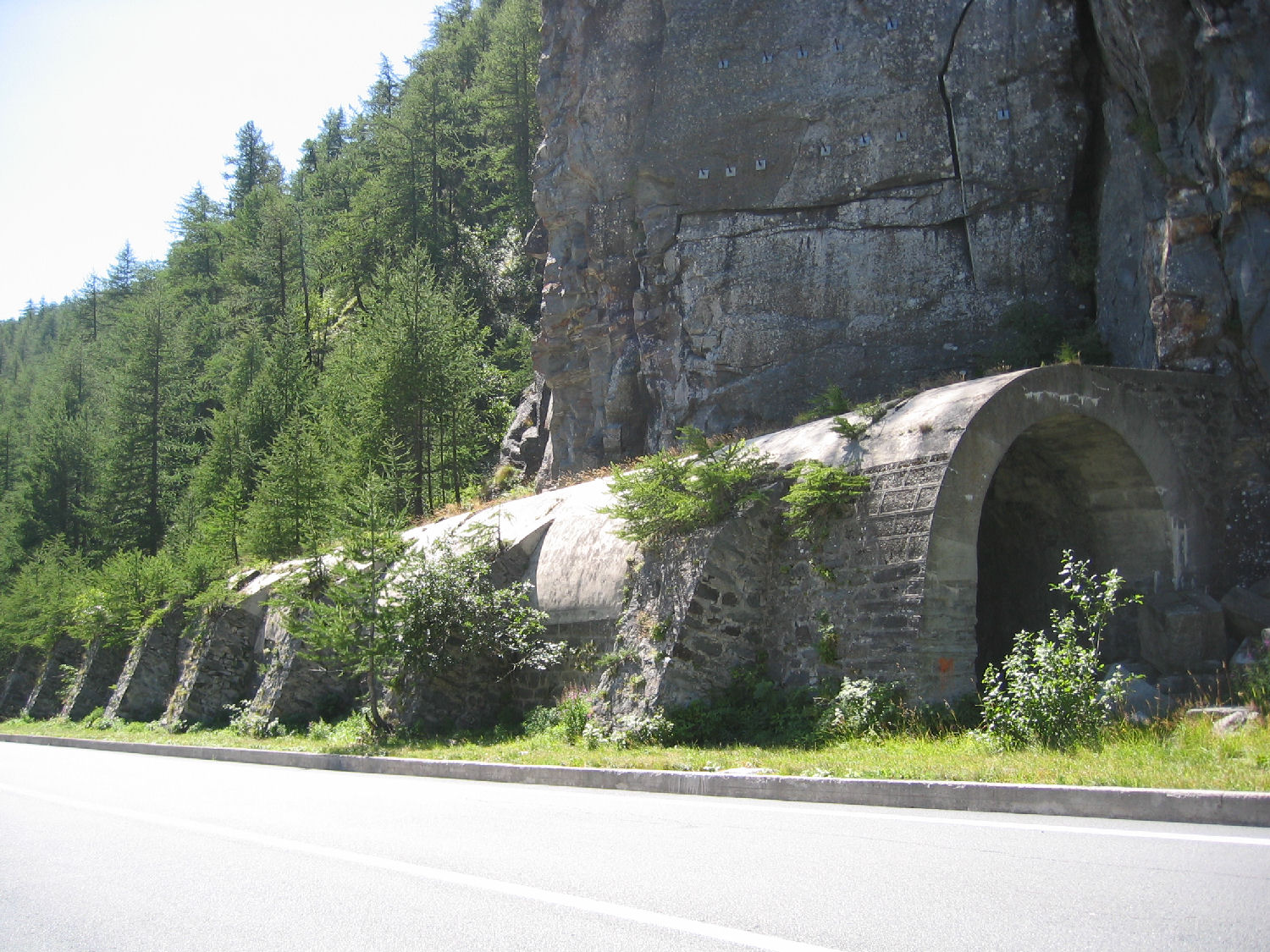
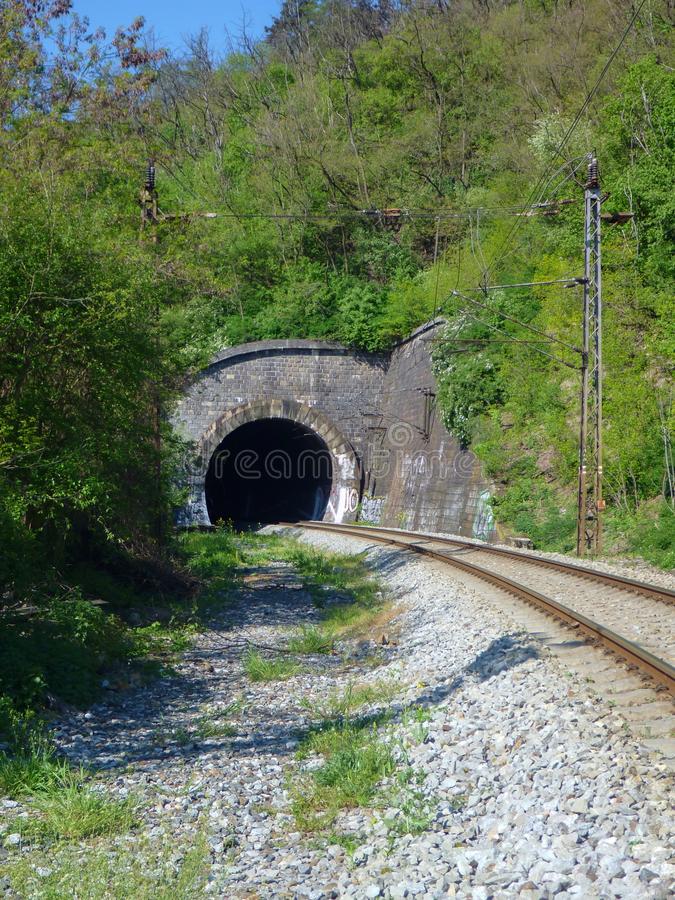

A case of extended opening to protect against snow/ice/rocks/goats/mountaineers falling off the mountain

A US version of protection against falling rocks


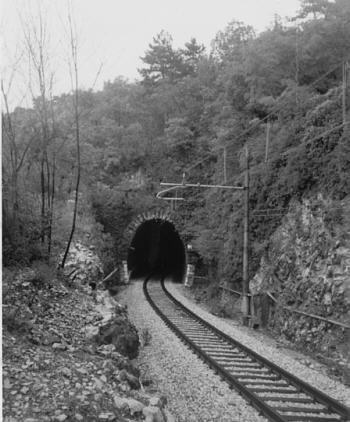
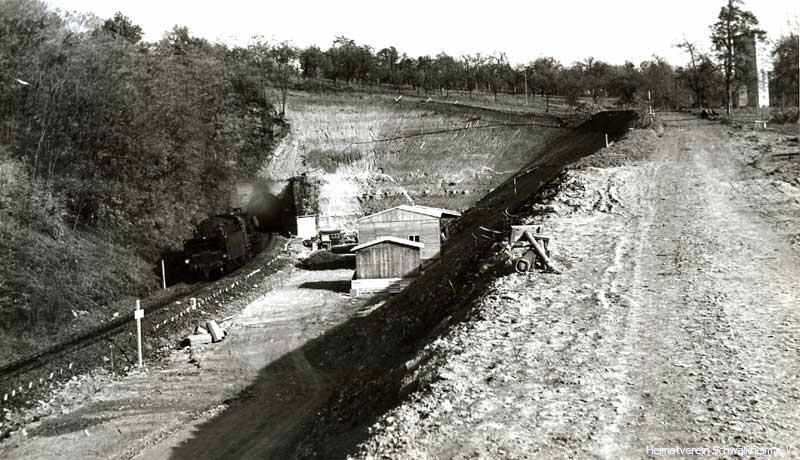
If the rock is of good quality there is usually no need for reinforcements or lining.
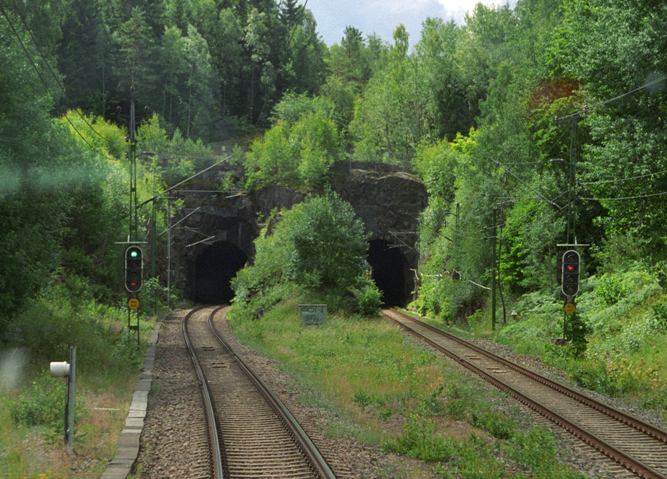
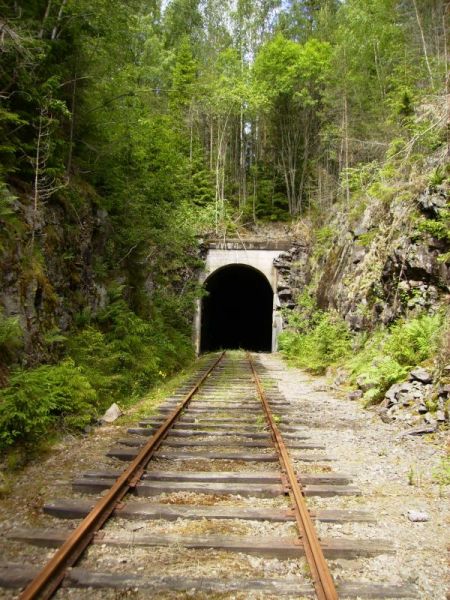
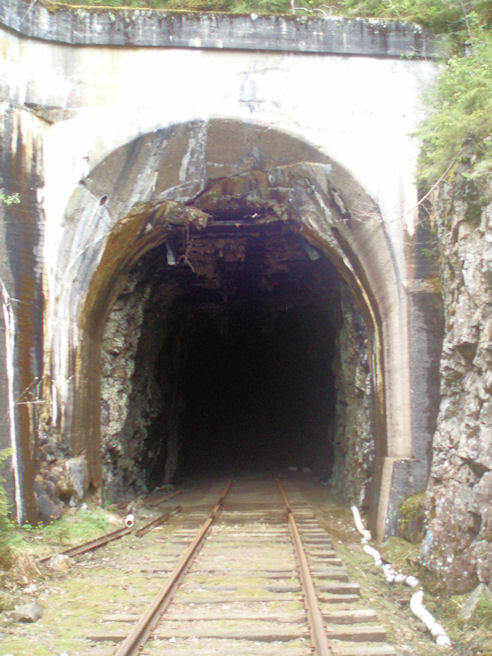
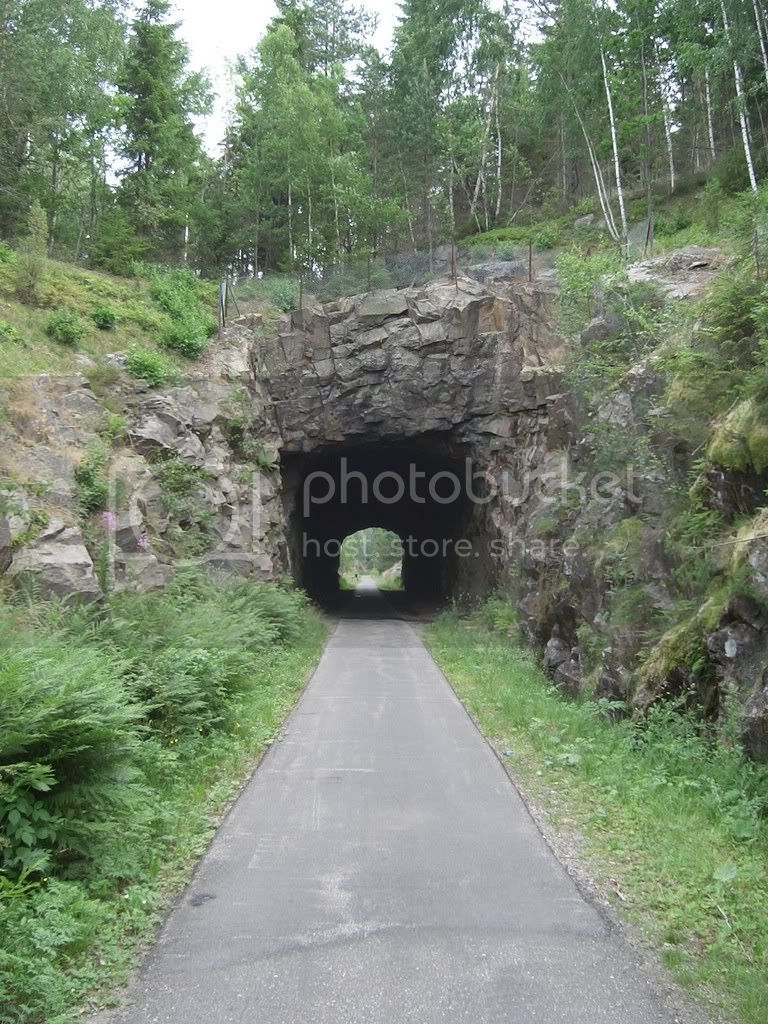
Used to be a railroad here but it is long gone now
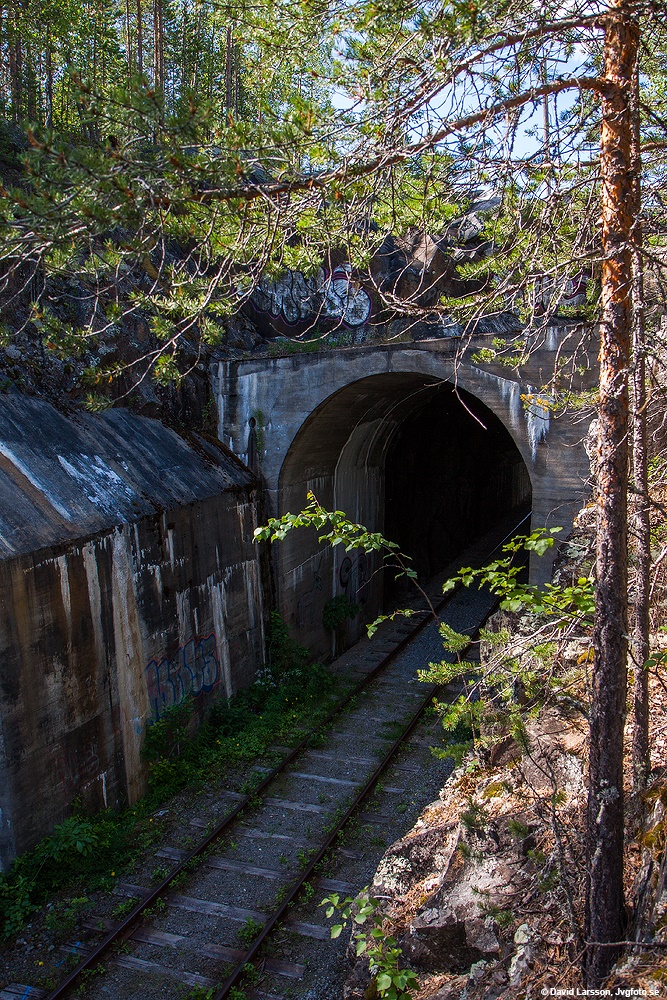
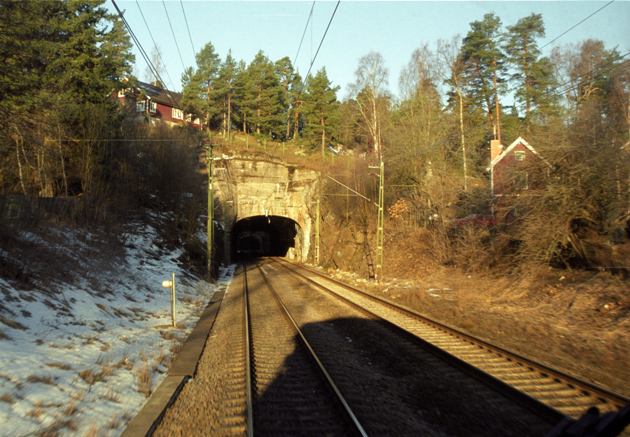
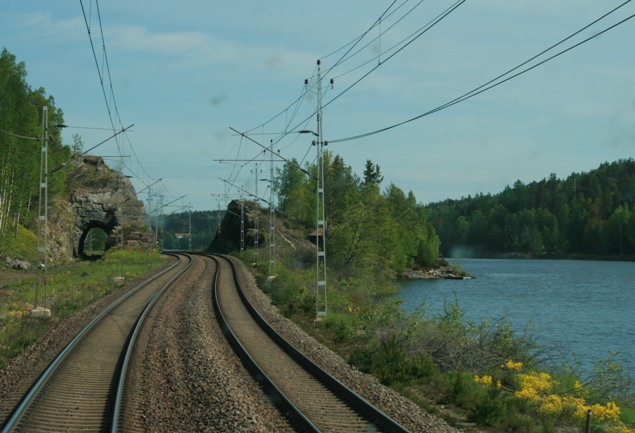
Tunnel on the left side has been replaced by an open cut, Graversfors south side, modern times

Graversfors south side

Graversfors north side
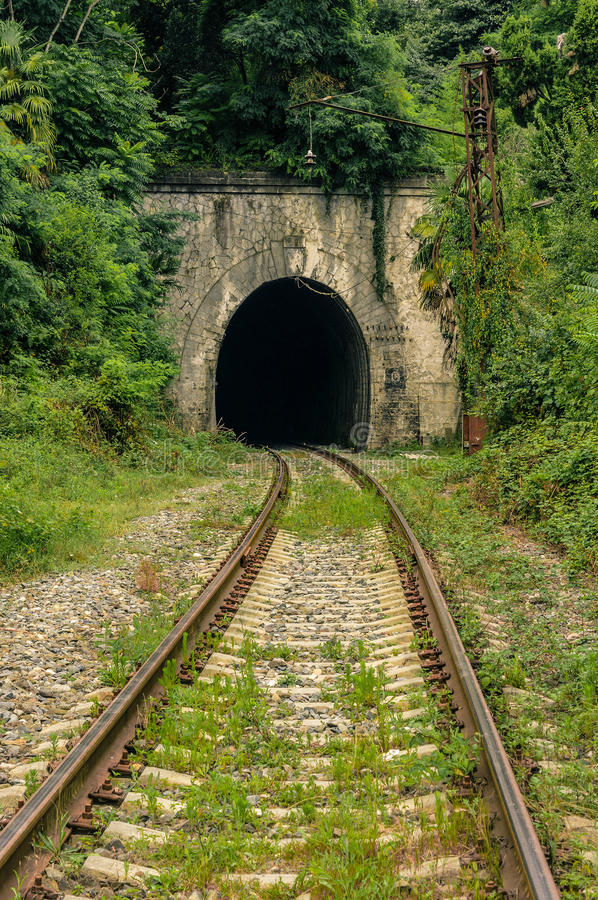
Somewhere in Abchazia
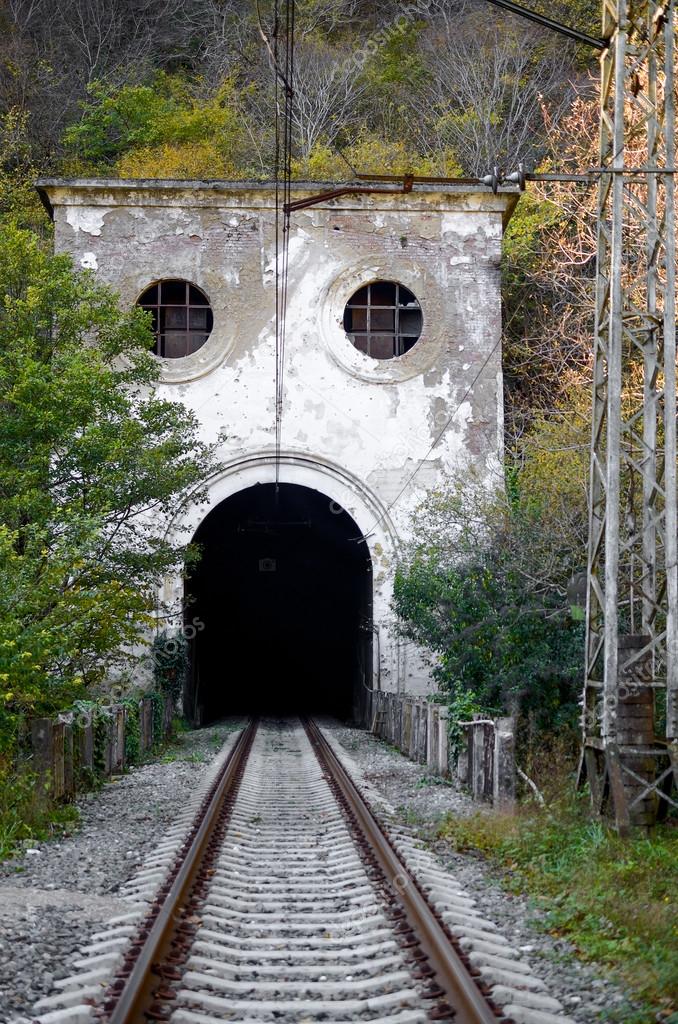
Somewhere in Abchazia
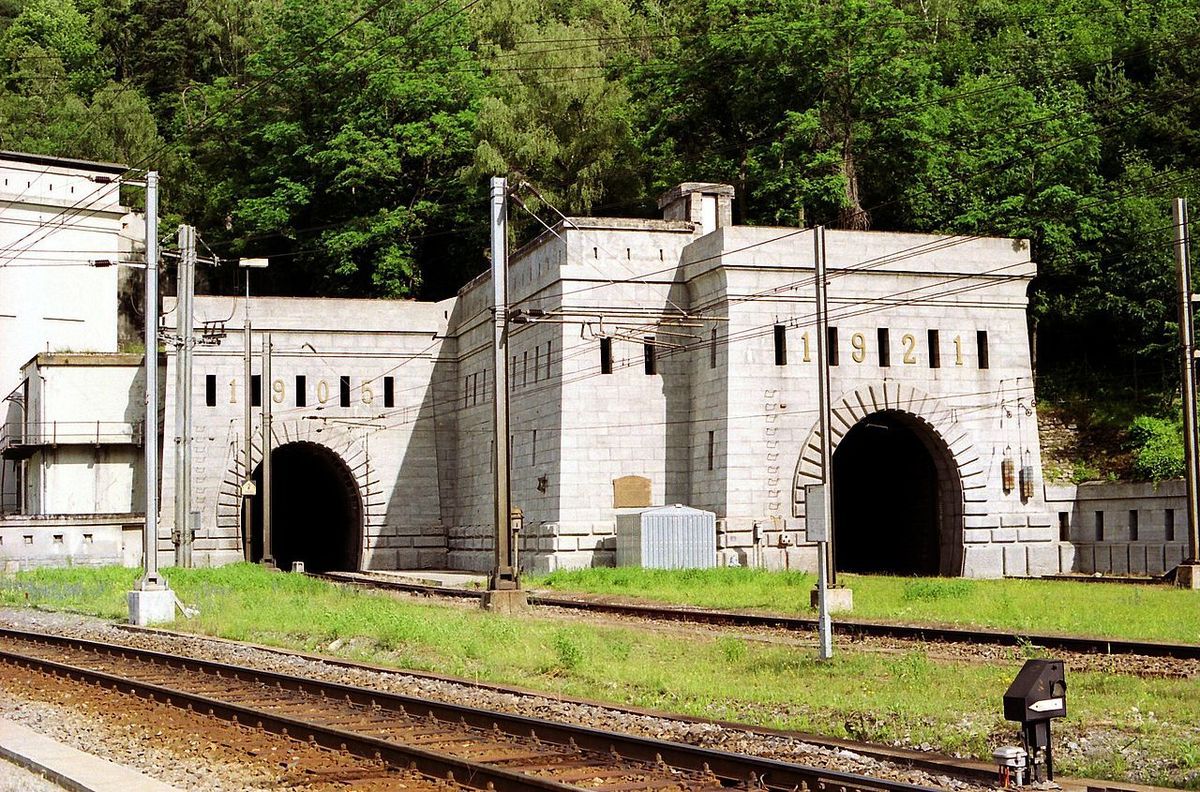
Switzerland
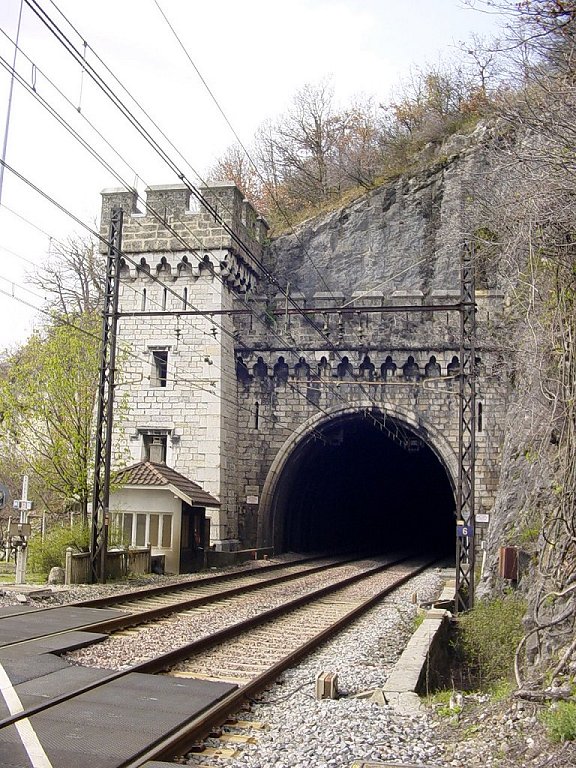
In Luxemburg ?
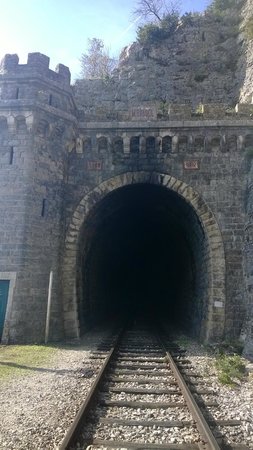
In France ?
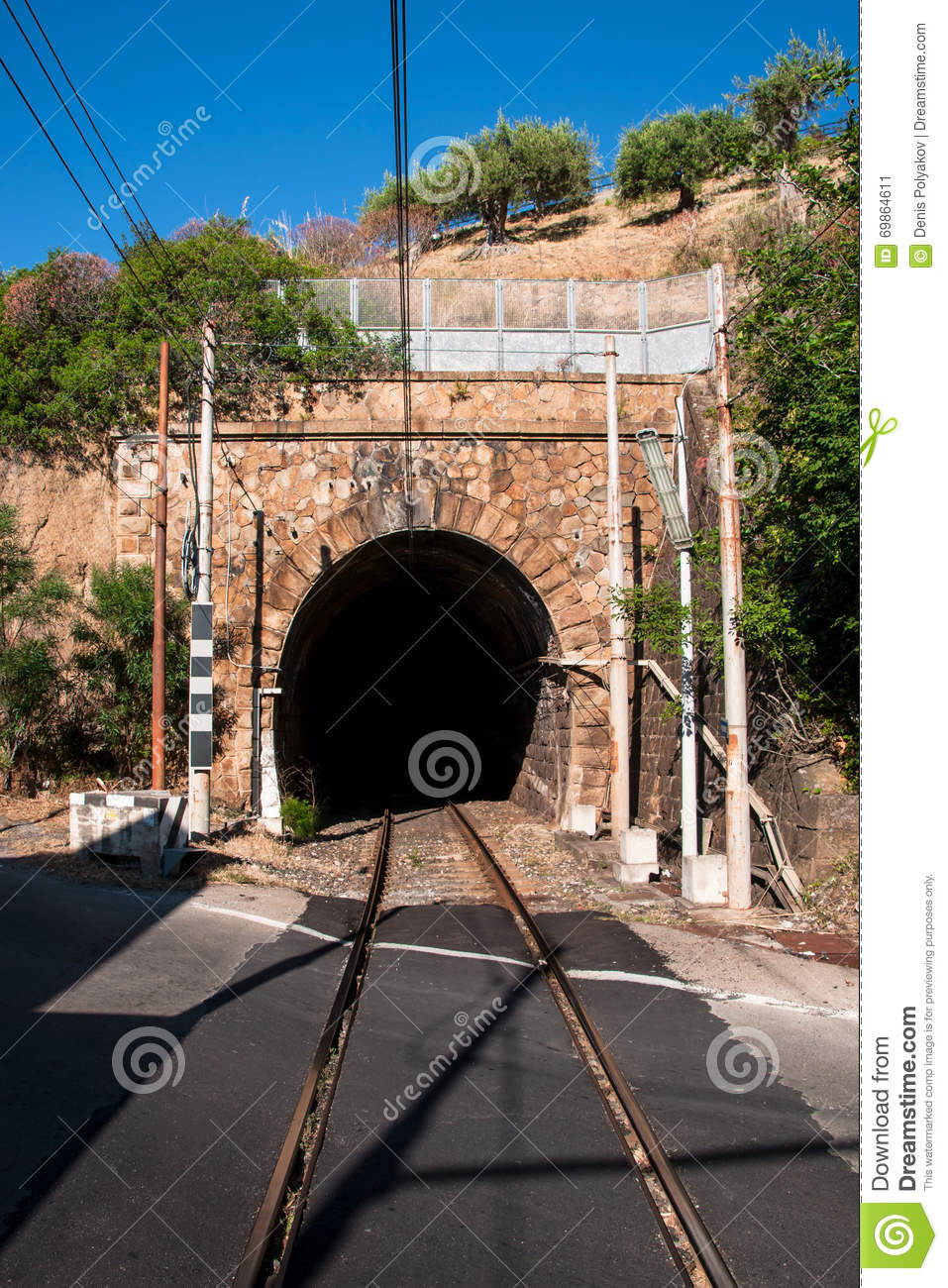
In Italy
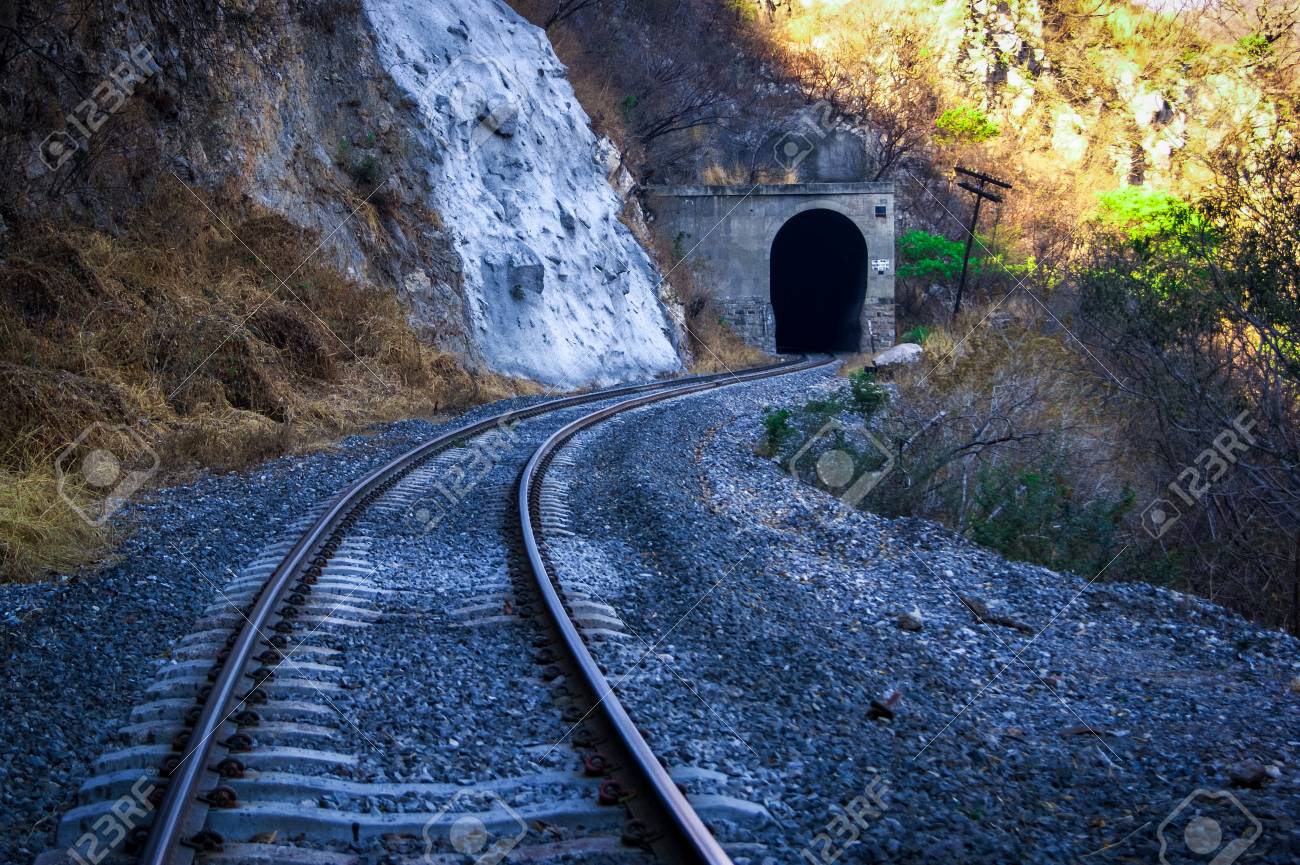
In France
A tunnel was only built if it was the cheapest alternative.
An open slit/trench is cheaper up to the point where the cost for removing rock is greater than the cost for tunneling through it.
/ Robin
